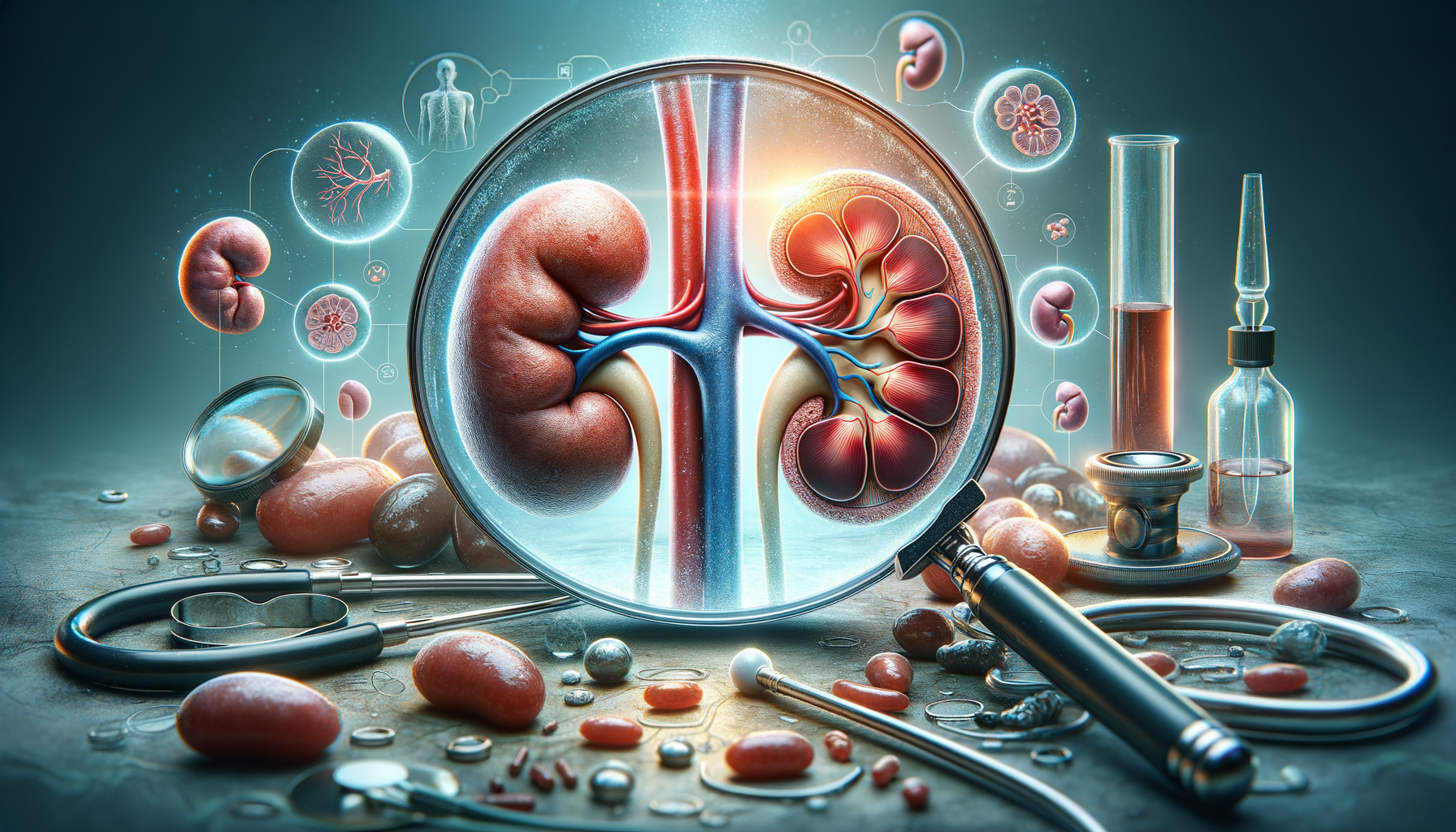
Kidney Failure: What Doctors Want You to Know About Early Detection
Introduction to Kidney Disease
Kidney disease is a critical health issue affecting millions worldwide. Often referred to as a „silent killer,“ it can progress unnoticed until it reaches an advanced stage. Understanding the early signs and symptoms is crucial for effective management and prevention of further complications.
The kidneys play a vital role in filtering waste and excess fluids from the blood, maintaining a balance of electrolytes, and regulating blood pressure. When these organs fail to perform efficiently, toxins accumulate, leading to severe health issues. Early detection of kidney disease can significantly improve outcomes and quality of life.
In this article, we will delve into the various aspects of kidney disease, its causes, symptoms, and the importance of early detection. We will also explore preventive measures and treatment options available to manage this condition effectively.
Causes and Risk Factors
Kidney disease can arise from a multitude of causes, often intertwined with other health conditions. One of the primary causes is diabetes, a condition characterized by high blood sugar levels that can damage the blood vessels in the kidneys over time. Hypertension, or high blood pressure, is another significant risk factor, as it can strain the blood vessels in the kidneys, impairing their function.
Other potential causes include chronic inflammation of the kidneys (glomerulonephritis), polycystic kidney disease, and prolonged obstruction of the urinary tract due to conditions like kidney stones or an enlarged prostate. Additionally, lifestyle factors such as smoking, obesity, and a diet high in sodium can contribute to the development of kidney disease.
Genetics also play a role, with a family history of kidney disease increasing the likelihood of developing the condition. It’s essential to be aware of these risk factors and work towards minimizing them through lifestyle changes and regular health check-ups.
Symptoms and Early Detection
Kidney disease is notorious for its lack of early symptoms, which is why it often goes undetected until it reaches a critical stage. However, there are subtle signs that can indicate kidney dysfunction. These include fatigue, difficulty concentrating, poor appetite, trouble sleeping, muscle cramping, and swelling in the feet and ankles.
More specific symptoms may include changes in urination patterns, such as increased frequency, dark or foamy urine, or blood in the urine. If you experience any of these symptoms, it’s vital to consult a healthcare professional for a thorough evaluation.
Early detection is key to managing kidney disease effectively. Regular screening tests, such as blood pressure monitoring, blood tests for creatinine levels, and urine tests for protein, can help detect kidney issues before they become severe. These tests are particularly important for individuals with diabetes, hypertension, or a family history of kidney disease.
Prevention and Lifestyle Modifications
Preventing kidney disease involves adopting a healthy lifestyle and managing underlying health conditions. Maintaining a balanced diet low in sodium and rich in fruits, vegetables, and whole grains can support kidney health. Staying hydrated is also crucial, as it helps the kidneys filter waste efficiently.
Regular physical activity can help control blood pressure and blood sugar levels, reducing the risk of kidney damage. It’s also important to avoid smoking and limit alcohol consumption, as these habits can exacerbate kidney problems.
Managing existing health conditions, such as diabetes and hypertension, is essential in preventing kidney disease. This may involve taking prescribed medications, monitoring blood sugar and blood pressure levels, and attending regular medical check-ups to ensure these conditions are under control.
Treatment Options and Management
Once diagnosed, the management of kidney disease focuses on slowing its progression and addressing the underlying causes. Treatment may include medications to control blood pressure, blood sugar levels, and cholesterol, as these factors can impact kidney health.
For individuals with advanced kidney disease, dialysis or a kidney transplant may be necessary. Dialysis involves using a machine to filter waste from the blood, while a kidney transplant replaces the damaged kidney with a healthy one from a donor.
In addition to medical treatments, lifestyle modifications play a crucial role in managing kidney disease. Following a kidney-friendly diet, staying active, and avoiding nephrotoxic medications can help preserve kidney function and improve quality of life.